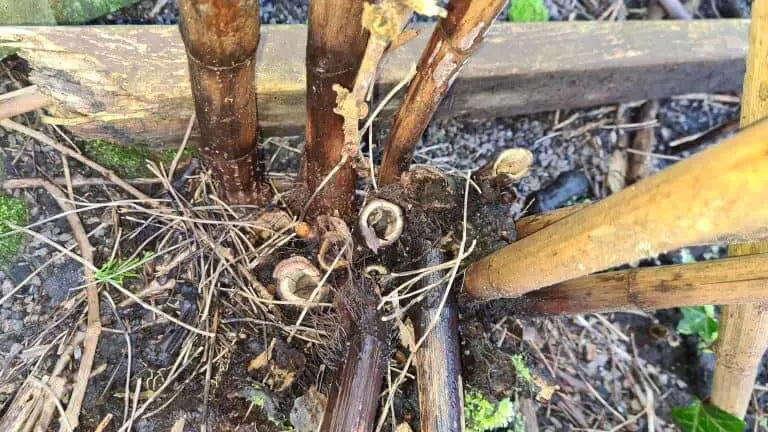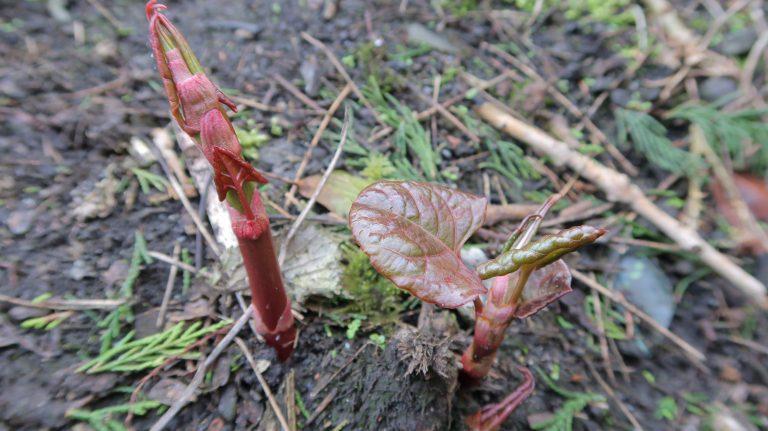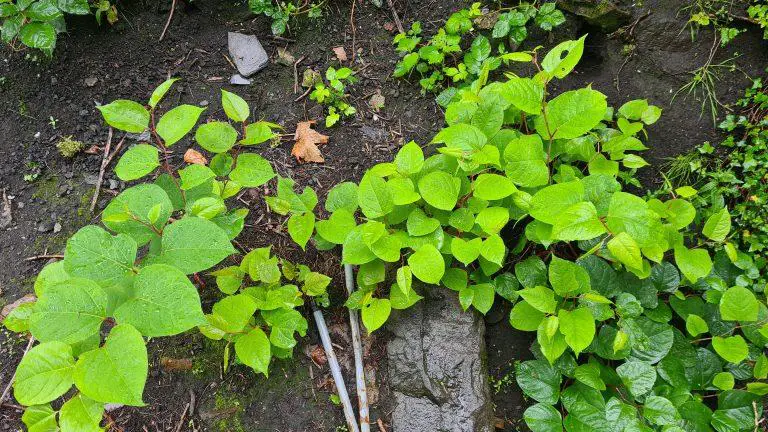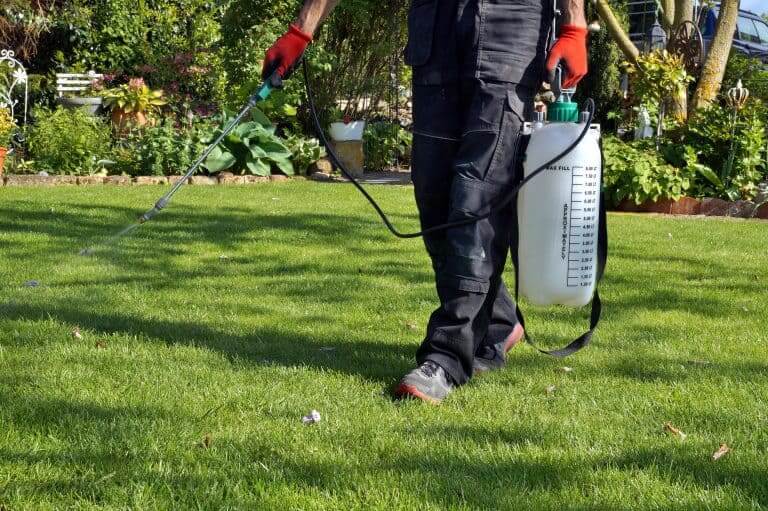The legal side of Japanese knotweed UK law and what it has to say about it
Whilst some of us will simply look at it as just a weed, it is the very damage that it can cause that can bear financial consequences and legal ramifications.
Take heed if you find Japanese knotweed on your property as you will have a legal obligation to ensure it does not spread to neighbouring properties. It is more so the case with the Japanese knotweed UK law and the recent number of legal cases within our legal system.
There have been several legal cases where action has been taken against the landowners where Japanese knotweed was found to have infringed and caused damage to a neighbouring property owner.
Why do we need laws for Japanese knotweed?
It is not that Japanese knotweed is poisonous or harmful. It is not even harmful to humans or animals. It is even used to make a Japanese knotweed pie.
The real danger of Japanese knotweed lies in its destruction. Japanese knotweed is in fact the first coloniser of volcanos, which explains the strengths and durability of the plant. Which can break through fissures or cracks in the concrete, tarmac, or anything that stands in its path. This destruction causes havoc and has a major effect on the value of a property and the surrounding properties.
According to the latest Land Registry price index, the average UK house costs £228,000. The presence of Japanese knotweed has diminished the value of affected houses by 10 per cent, creating an average loss of £22,800 to property owners. This is due to the stigma attached to knotweed impacting its future sale price.*
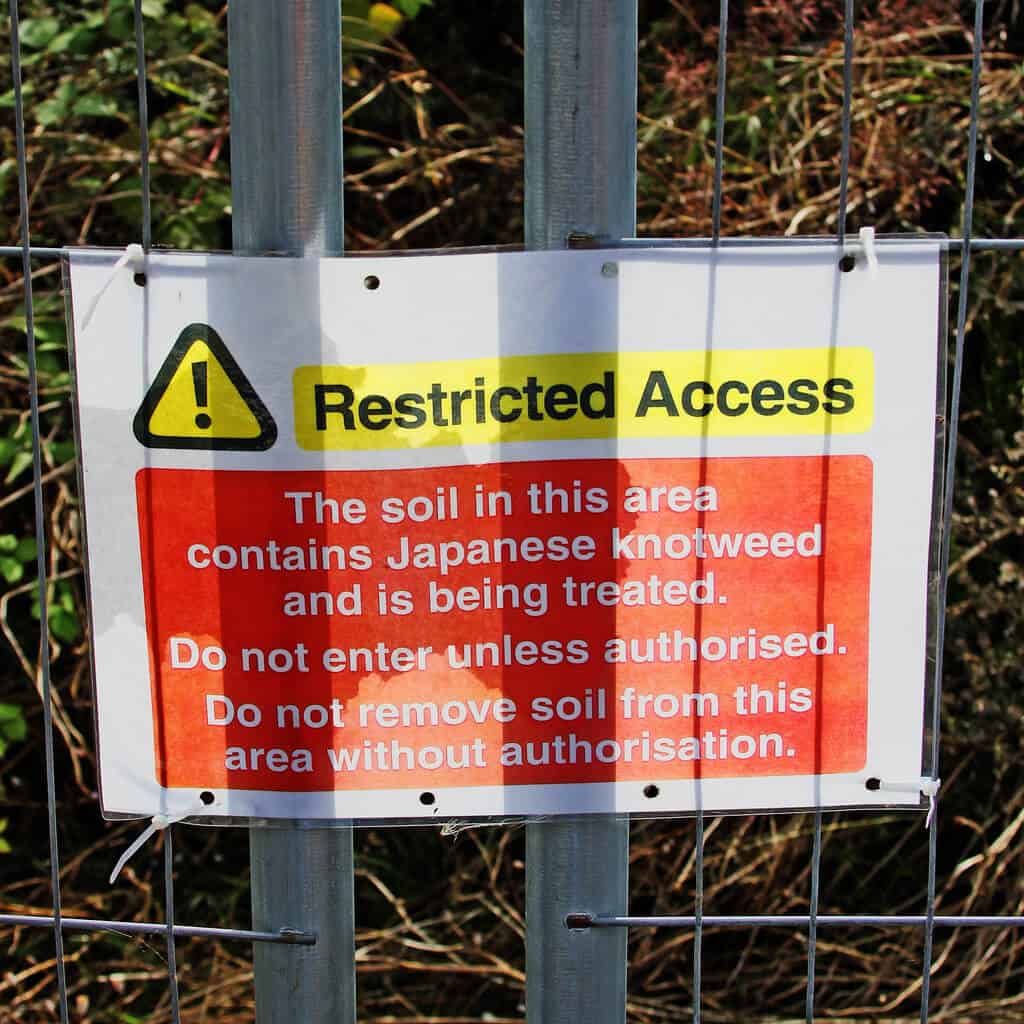
What is the legislation according to UK Law?
In terms of the law, ignorance is not a defence. Japanese knotweed carries serious penalties and we all need to be more informed of the current legislation.
Environmental Protection Act 1990
Designate Japanese knotweed as controlled waste – this means you have to have a licence to remove it from the site.
Wildlife and Countryside Act 1981
“If any person plants or otherwise cause to grow in the wild any (Japanese knotweed), he shall be guilty of an offence.”
Anti-social Behaviour, Crime and Policing Act 2014
Failure to control a plant that is having a detrimental effect on the quality of life in the locality can result in a fine in the region of £2,500 for the general public and £20,000 for companies as well as up to 6 months prison term.
Do I have to declare Japanese knotweed on my property?
It is not illegal to have Japanese knotweed on your land and neither is Japanese knotweed a notifiable weed, so you do not have to inform the authorities of its presence. You only need to declare Japanese knotweed on your property when you intend to sell and need to be honest with the intended buyers.
If you have Japanese knotweed growing on your property, you may be wondering whether you need to declare it. The answer is yes.
Under UK law, Japanese knotweed is classified as a “controlled waste” due to its highly invasive nature and potential to cause damage to buildings, roads, and other structures.
Therefore, if you are aware of the presence of Japanese knotweed on your property, you must declare it to any potential buyers or tenants before entering into a sale or rental agreement. Failure to disclose this information could result in legal action, including fines and compensation claims.
It is essential to seek professional advice from a qualified surveyor or specialist contractor if you suspect the presence of Japanese knotweed on your property to ensure that it is appropriately managed and controlled.
Japanese knotweed is classed as a controlled plant under the Wildlife and Countryside Act 1981 section 114 (2) (WCA 1981). It is not illegal to have Japanese knotweed on your property, but it is against the law to cause or allow the plant to spread in the wild.
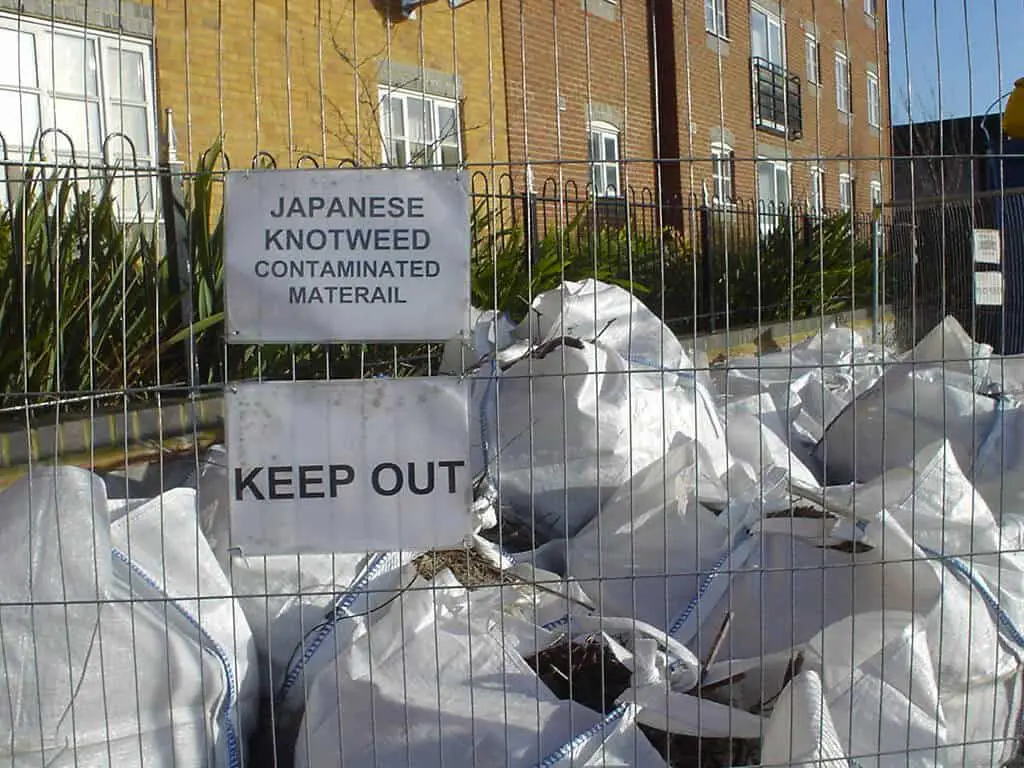
UK Law, Japanese knotweed and selling your property
When selling your property, you will be required to fill out a TA6 form. This form will be included in the pack that your solicitor will pass over to the purchaser. Within the TA6 form, there is a specific question with regard to Japanese knotweed.
The guidance states, “The seller should state whether the property is affected by Japanese knotweed. If you are unsure that Japanese knotweed exists above or below ground or whether it has been previously managed on the property, please indicate ‘Not known’.
If ‘No’ is chosen as an answer the seller must be certain that no rhizome (root) is present in the ground of the property, or within 3m of the property boundary even if there are no visible signs above ground.”
What this effectively means is that unless you are 100% certain you should be ticking the box ‘Not known.’ This would then leave it up to the purchaser to take a calculated risk or to purchase a report from a certified Japanese knotweed expert to ensure there was no Japanese knotweed growing on the property.
With an estimated, 1.25 million homes in the U.K. affected by Japanese knotweed obtaining a Japanese knotweed report would certainly be our recommendation.
The law regarding Japanese knotweed and being aware of it on your property highlights the need to be vigilant and take action as soon as possible to control or eradicate it.
Want to know more?
Knotweed Removal aims to provide the most up-to-date information, help and advice for YOU to make informed decisions. If you are unsure or uncertain about how to proceed, please reach out to us and we will gladly come back and advise you as best we can.
Governmental advice can be found here and the UK law covering the removal of Japanese Knotweed as stated under the Wildlife and Countryside Act 1981 can be found here.
The best means to contact us is via our email – hello@knotweedremoval.tips
Do not forget we have a library of blogs covering many areas relevant to Japanese Knotweed, our free downloadable How-to Guides and Product Reviews on the latest methods being employed to eradicate or remove Japanese Knotweed.
Knotweed Removal, UK


